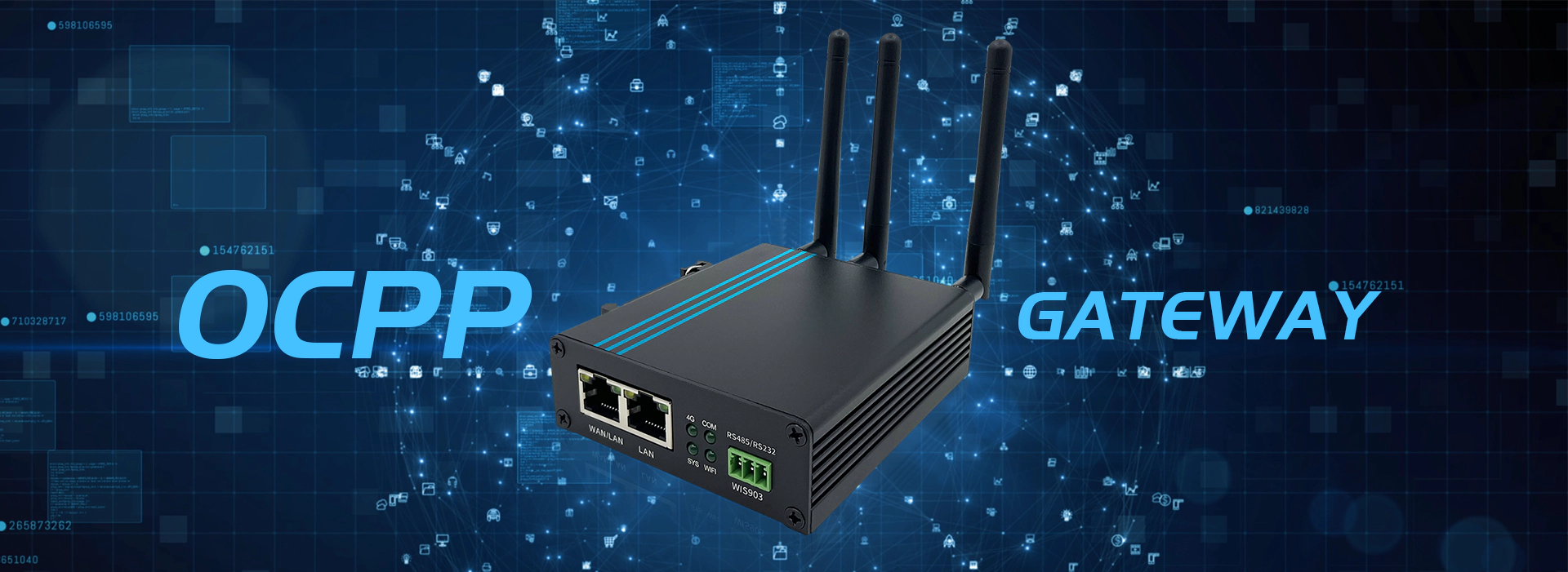
EV Charger function expansion: OCPP gateway
OCPP (Open Charge Point Protocol) 1.6 is a widely used communication standard in electric vehicle charging infrastructure. Although OCPP 1.6 provides basic functionalities for interaction between charging stations and Central Management Systems (CSMS), the capabilities of OCPP mainboards are limited due to their constrained memory resources. To address this issue, the OCPP protocol gateway can serve as an extension of the OCPP mainboard, enabling the implementation of the complete functionalities of OCPP 1.6 and enhancing the performance and flexibility of charging stations.

▶ Limitations of OCPP Mainboards
Memory Resource Constraints
OCPP mainboards are typically integrated within charging stations, designed to meet basic communication needs. However, due to limited memory and processing power, many advanced features cannot be implemented on the mainboard. This limitation restricts the charging station’s capabilities in areas such as smart charging, dynamic load management, and remote monitoring.
Missing Features:
In OCPP 1.6, charging stations are required to support various functionalities, such as:
- Smart Charging: Dynamically adjusting charging power based on grid conditions.
- Load Management: Optimizing energy distribution among multiple chargers.
- Remote Monitoring and Diagnostics: Real-time access to charging status and fault information.
Due to insufficient resources on the mainboard, many charging stations are unable to fully support these features, thereby impacting overall operational efficiency.
▶ Advantages of the OCPP Protocol Gateway
Complete Support for OCPP 1.6 Features
The OCPP protocol gateway can act as an extension of the OCPP mainboard, providing full support for OCPP 1.6 functionalities. By connecting the gateway with the mainboard, operators can achieve the following advantages:
- Protocol Conversion: The gateway can handle different versions of the OCPP protocol, allowing seamless cooperation between older devices and modern management systems.
- Data Aggregation and Optimization: The gateway can collect and process data from multiple charging stations in real-time and perform local optimizations. For example, it can dynamically adjust power distribution to prevent grid overload.
- Enhanced Security: With encrypted communication and authentication mechanisms, the gateway ensures secure data transmission, preventing potential data breaches and network attacks.
Flexible Deployment and Maintenance
By utilizing the OCPP protocol gateway, operators can flexibly deploy charging stations without significant modifications to existing hardware. The gateway connects to the mainboard via Ethernet or mobile networks, enabling efficient data transmission even in areas with inadequate network infrastructure.
Real-Time Monitoring and Remote Management
Integrating an OCPP protocol gateway allows operators to achieve real-time monitoring and remote management of charging stations. This includes functionalities such as starting/stopping charging sessions, setting power limits, and diagnosing faults—significantly reducing on-site maintenance needs and improving operational efficiency.
▶ Conclusion
In summary, while OCPP mainboards are limited in their ability to implement all features of OCPP 1.6 due to constrained memory resources, introducing an OCPP protocol gateway effectively extends their capabilities to realize complete functionalities of OCPP 1.6. This solution not only enhances the performance of charging stations but also provides flexibility for future technological advancements, making the entire electric vehicle charging network more efficient, secure, and sustainable.